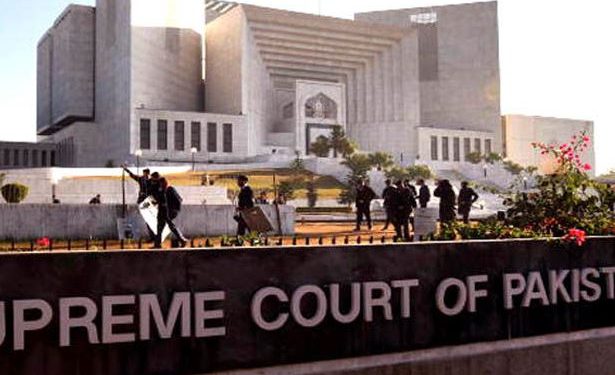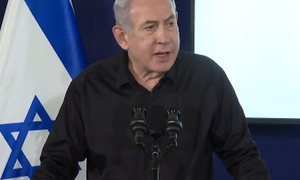Islamabad: Ahead of Pakistan’s general elections, the Supreme Court has ruled that electoral laws must be interpreted to favour enfranchisement to ensure voters have maximum choices to elect their future leadership, a media report said Sunday.
Justice Syed Mansoor Ali wrote this in a judgement as a three-judge bench of the apex court overturned a high court order upholding the rejection of the candidature of former prime minister Imran Khan’s party member, the Dawn newspaper reported.
Pakistan goes to polls February 8.
The nomination papers of Tahir Said, the Pakistan Tehreek-e-Insaf (PTI) party candidate from the National Assembly (NA) constituency 49 (Attock-I), were rejected by the returning officer (RO) for being a “proclaimed offender”. The Lahore High Court upheld the RO’s decision, which Said challenged in the Supreme Court.
Justice Shah, who headed the bench, said that Articles 62 and 63 did not mention that a “proclaimed offender” was disqualified from being elected or from being a member of parliament.
He also said that the grounds provided for the nomination paper’s rejection did not empower an RO to reject the candidature for being the proclaimed offender, according to the report.
Setting aside the LHC order, the judgement said that the LHC made a legal error in rejecting the petitioner’s nomination paper and added that there was nothing on record to show that the petitioner was a proclaimed offender.
“The aim of prescribing qualifications and disqualifications (under Articles 62 and 63 of the Constitution) for candidates to contest elections is to maintain the integrity and effectiveness of the political process,” the report said, citing Justice Shah’s judgement. It added that the criteria are designed to ensure that individuals holding public office meet certain standards.
Shah urged courts to deal with the acceptance or rejection of the nomination papers with this approach, which he said is “rooted in the constitutional rights and values.”
“The right to vote freely for the candidate of one’s choice is the essence of a democratic society, and any restrictions on that right strike at the heart of representative government,” he wrote.
As guardians of democracy and fundamental rights, courts should approach “electoral matters with circumspection and ensure that their interventions uphold the democratic principles upon which the nation thrives and the fundamental rights of citizens to contest elections and vote for candidates of their choice,” Shah said.
Ahead of the general elections, 71-year-old Khan’s PTI party has been robbed of the iconic cricket bat election symbol, his and his party colleagues’ nomination papers have been rejected and at least one of his party leaders has been killed in the poll-related violence.
PTI






































